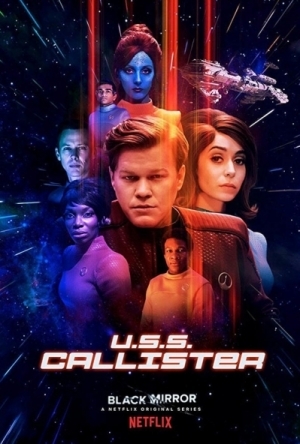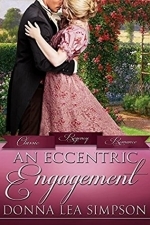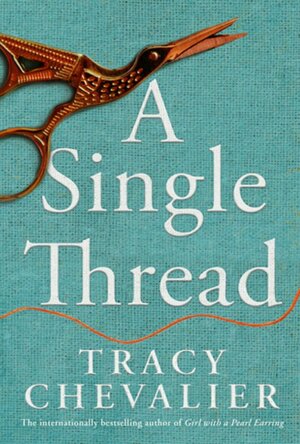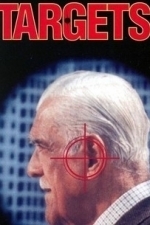Sarah (7800 KP) rated Black Mirror - Season 4 in TV
Mar 26, 2018
This is a fantastic series with a lot of very strong episodes. From the USS Callister which really makes fun of the old school sci-fi shows, to Hang the DJ which introduces a whole new method to modern dating. Virtually every episode is full of dark humour, with very ominous overtones. My favourite would have to be Black Museum, as it is ridiculously funny and I loved the references to the previous episodes. The only truly weak episode would probably be Metalhead and that was more due to the execution rather the premise itself.
For me, the best thing about Black Mirror is the social and cultural commentary and the use of technology for sinister means. As this is set in an alternate or near future, you can almost see these things happening in reality and each episode is a great talking point (if you happen to be watching it with someone else). Arkangel is a great example, highlighting the pitfalls of overprotective parenting.
A fantastic return to form for Black Mirror, and has left me wanting more!

Stanley Kubrick: New Perspectives
Peter Kramer, Tatjana Ljujic and Richard Daniels
Book
Stanley Kubrick: New Perspectives brings together essays by scholars who have examined the traces...
How Freakin' Zeitgeist are You?
Book
How Freakin' Zeitgeist Are You? is the definitive collection of Murray Lachlan Young's poems from...
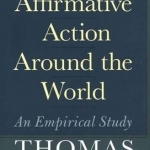
Affirmative Action Around the World: An Empirical Study
Book
In this important book, an eminent authority presents a new perspective on affirmative action,...
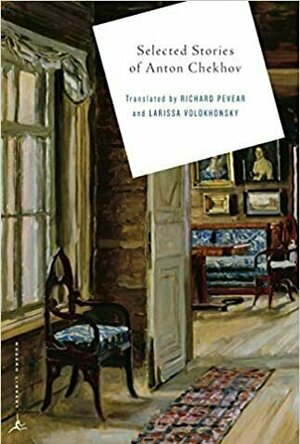
Stories of Anton Chekhov
Book
Called the greatest of short story writer, Anton Chekhov changed the genre itself with his spare,...

Introduction to the New Statistics: Estimation, Open Science, and Beyond
Geoff Cumming and Robert Calin-Jageman
Book
This is the first introductory statistics text to use an estimation approach from the start to help...
Jamie (131 KP) rated An Eccentric Engagement in Books
May 24, 2017
Both of these plot lines are actually really good, but I felt that they both needed more time to be developed and would have been better in a full length novel. All of the conflict was resolved in a few pages with barely any resistance and the discussion felt more like a lecture that was repeated multiple times. Not that the message was bad, I appreciated the way they approach discussing the mentally ill and the elderly, and I actually liked the Marchand’s way of life, but I think it could have been delivered better.
It also didn’t help that Sorrow kind of annoyed me. When she talks to other people to try and explain her views it again turns into a mildly pretentious lecture. Her insistence on absolute harmony and willingness to throw everything out of the window if she didn’t get her way was also extremely grating. Creating needless drama for the sake of drama is not a good way of filling up pages.
Overall its not bad, it’s a cute and clean love story that will appeal to folks with a strong sense of social justice. It was a fluffy and pleasant way to pass the time, but I didn’t feel much of anything while reading it.
ClareR (6067 KP) rated A Single Thread in Books
Sep 12, 2019
I loved the descriptions of the embroidery: the different stitches, the colours, the camaraderie and friendships that Violet makes with Gilda and Miss Pesel (who incidentally, really existed - and what a life SHE had!). Who knew that embroidery and campanology (bell-ringing) could be so interesting?! Violet becomes very interested in bell-ringing - whether that’s because of the actual bell-ringing, or the fatherly Arthur who she falls in love with, I’m not quite sure.
I thought the social attitudes of the time were really well portrayed. ‘Spare women’ weren’t regarded very favourably, but this was something completely out of their control: so many young men had been killed during the war, that there just weren’t enough men to go round. And when some women found love with one another, they were ostracised and ridiculed. It’s good to see that we have moved on in some ways.
Anyway, I loved this book. It’s not just about embroidery and campanology, and I think that any reader will be pleasantly surprised at how interesting Tracy Chevalier makes these things! It’s a social commentary, a love story, a story about friendship and passion: of the man/ woman, woman/ woman and hobbies varieties. And I wouldn’t hesitate to recommend it.
Matthew Krueger (10051 KP) rated Targets (1968) in Movies
Jun 18, 2020
The plot: After unhinged Vietnam vet Bobby Thompson (Tim O'Kelly) kills his wife and mother, he goes on a brutal shooting spree. Starting at an oil refinery, he evades the police and continues his murderous outing at a drive-in movie theater, where Byron Orlock (Boris Karloff), a retiring horror film icon, is making a promotional appearance. Before long, Orlock, a symbol of fantastical old-fashioned scares, faces off against Thompson, a remorseless psychopath rooted in a harsh modern reality.
Even Karloff's charcter is a retired horror film actor, so he can never get away from the horror genre/type-casting.
In the film's finale at a drive-in theater, Orlok – the old-fashioned, traditional screen monster who always obeyed the rules – confronts the new, realistic, nihilistic late-1960s "monster" in the shape of a clean-cut, unassuming multiple murderer.
Bogdanovich got the chance to make Targets because Boris Karloff owed studio head Roger Corman two days' work. Corman told Bogdanovich he could make any film he liked provided he used Karloff and stayed under budget. In addition, Bogdanovich had to use clips from Corman's Napoleonic-era thriller The Terror in the movie. The clips from The Terror feature Jack Nicholson and Boris Karloff. A brief clip of Howard Hawks' 1931 film The Criminal Code featuring Karloff was also used.
American International Pictures offered to release, but Bogdanovich wanted to try to see if the film could get a deal with a major studio. It was seen by Robert Evans of Paramount who bought it for $150,000, giving Corman an instant profit on the movie before it was even released.
Although the film was written and production photography completed in late 1967, it was released after the assassinations of Martin Luther King and Robert F. Kennedy in early 1968 and thus had some topical relevance to then-current events. Nevertheless, it was not very successful at the box office.
Quentin Tarantino later called it "the most political movie Corman ever made since The Intruder. And forty years later it’s still one of the strongest cries for gun control in American cinema. The film isn’t a thriller with a social commentary buried inside of it (the normal Corman model), it’s a social commentary with a thriller buried inside of it... It was one of the most powerful films of 1968 and one of the greatest directorial debuts of all time. And I believe the best film ever produced by Roger Corman.
Its a excellent mystery suspenseful thrilling starring Boris Karloff, last appearance in a marjor american film, before he passed away in 1968. A great film to end your career on.
Bong Mines Entertainment (15 KP) rated 2 To The 6 - Single by Unchained in Music
Jun 21, 2019
“Already got labels tryna doctor me. If you can’t beat ‘em then join ‘em that’s their philosophy. You can try to change the tides, however obviously. It never works out how you want it like democracy.” – lyrics
‘2 to the 6’ finds Unchained XL dropping a thoughtful 64-bar verse in the main room of Black Orange Studios.
The likable tune’s cryptic title refers to the mathematical expression 2^6 (2 raised to the 6th power), which equals 64, representing the number of bars.
‘2 to the 6’ contains a relatable narrative, supreme rap vocals, and lush instrumentation scented with an Afrocentric hip-hop fragrance.
Also, the song covers a range of hard-hitting topics such as issues of racism, corruption, and economic injustice.
Unchained XL sneaks in a few references to various icons such as Nigerian filmmaker, Genevieve Nnaji (Lionheart); British Nigerian artist, “Burna Boy”; “Split” main character Kevin Crumb; and famous inventor, Thomas Edison.
The progressive emcee writes songs of protest, social commentary, and everyday experiences through the lens of a ‘third culture’ African migrant.
He draws inspiration from Afrobeat legend and political icon Fela Kuti, as well as artists like M.anifest, Antibalas, and A Tribe Called Quest.
2018 saw him touring the UK with shows in London, Bristol, Sheffield, Leeds, and Cardiff. Also, he performed alongside artists such as Mungos HiFi, Afro Cluster, and Eva Lazarus.
